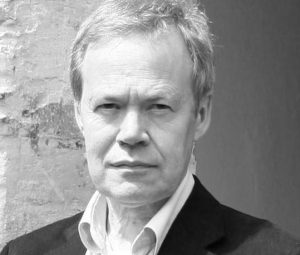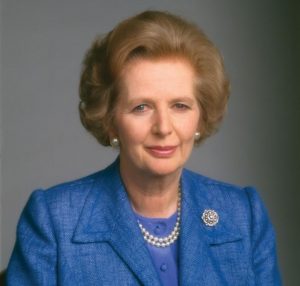
Margaret Thatcher’s approach to national security was set out in a speech in London on January 19th 1976. She had only recently become Conservative party leader and leader of the Opposition. The speech was an uncompromising attack on the expansionist plans of the Soviet Union, and a call to Britain and the West to wake up and strengthen their defences before it was too late. She declared: ‘The Russians are bent on world dominance, and they are rapidly acquiring the means to become the most powerful imperial nation the world has seen.’ A Russian newspaper referred derisively to Thatcher as ‘the iron lady’. The phrase was picked up by western media and came to define her attitudes towards defence and security, particularly during the Falklands War. The speech positioned her as a leading opponent of détente and an architect of the new cold war.
Two principles are affirmed throughout the speech. Firstly she gave priority to national security above all other aims in politics: ‘The first duty of any Government is to safeguard its people against external aggression. To guarantee the survival of our way of life.’ A government could only discharge that duty if it was prepared to spend enough on defence to deter external enemies. A strong economy was needed to do that, but the economy was not the primary goal of national policy. Citizens had to be persuaded that the choice between guns and butter was a false choice. There could be no secure prosperity if the government did not spend enough to keep the country safe. In the arguments today about whether western governments are spending enough of their GDP on defence, there is no doubt what Margaret Thatcher would advocate. Reducing defence expenditure was always for her a false economy.
Thatcher’s basic principles may be summarized as strong defence and strong alliances.
Secondly, recognizing that Britain was no longer strong enough to defend its way of life on its own, she urged alliances with other western countries which shared the same fundamental beliefs in economic and political freedom. In her 1976 speech, Thatcher argued that a key part of national security for Britain was the western alliance: ‘We look to our alliance with America and NATO as the main guarantee of our own security and, in the world beyond Europe, the United States is still the prime champion of freedom.’ British foreign policy should continue to be based on a close understanding with its traditional ally, the United States. This alliance reflected Britain’s Anglo-Saxon heritage which also embraced the countries of the old Commonwealth – Australia, New Zealand and Canada. This vision of Anglo-America anticipates the recent interest in the idea of the Anglosphere, which has been advocated on both sides of the Atlantic.

Thatcher’s basic principles may therefore be summarized as strong defence and strong alliances. How might those principles be applied to our present circumstances? Thatcher in her own career was concerned most of all with the threat from the Soviet Union. Her close partnership with Ronald Reagan, her willingness to see Cruise missiles deployed in Europe, her determination to defeat campaigners for unilateral nuclear disarmament, reflected that. But though at times she sounded like an ideological crusader, she was also highly pragmatic. She was one of the first western leaders to meet Gorbachev and see his potential.
She began her career as a strong supporter of the European Community, campaigning in the 1975 Referendum for Britain to stay a member. But while she often supported greater economic integration, she grew increasingly hostile to the plan for greater political integration, because she saw it as potentially undermining British national sovereignty, and driving a wedge between Britain and the United States. Whether she would have supported BREXIT is disputed. Charles Powell, her leading foreign policy adviser believes she would have decided reluctantly in favour of staying in the EU, because she would have feared the effects of BREXIT on the stability of western Europe and the cohesion of the western alliance. Other former colleagues like Norman Tebbit disagree, and think her concern for national independence would have made her a supporter of BREXIT.
She would have remained a strong advocate of interventionist policies to defeat terrorism. How she would have handled China is less certain.
She would have remained a strong advocate of interventionist policies to defeat terrorism. How she would have handled China is less certain. She was well aware of rising Chinese power, not least from her negotiations over the return of Hong Kong. She would have advocated friendly relations but she would always have supported negotiating from a position of military strength. She was a strong nationalist, but also a strong ideological believer in the West, and in the leadership role of the United States. Her priority for Britain was to be as close to the United States as possible, notwithstanding the occasional serious disagreements between the two countries, as over Grenada. But for Thatcher, the United States always mattered more than Europe.
Andrew Gamble serves as Emeritus Professor of Politics and International Studies Fellow Emeritus at Queens’ College University of Cambridge. He is also the author of numerous books, including The Free Economy and the Strong State: The Politics of Thatcherism (Duke University Press, 1988).




